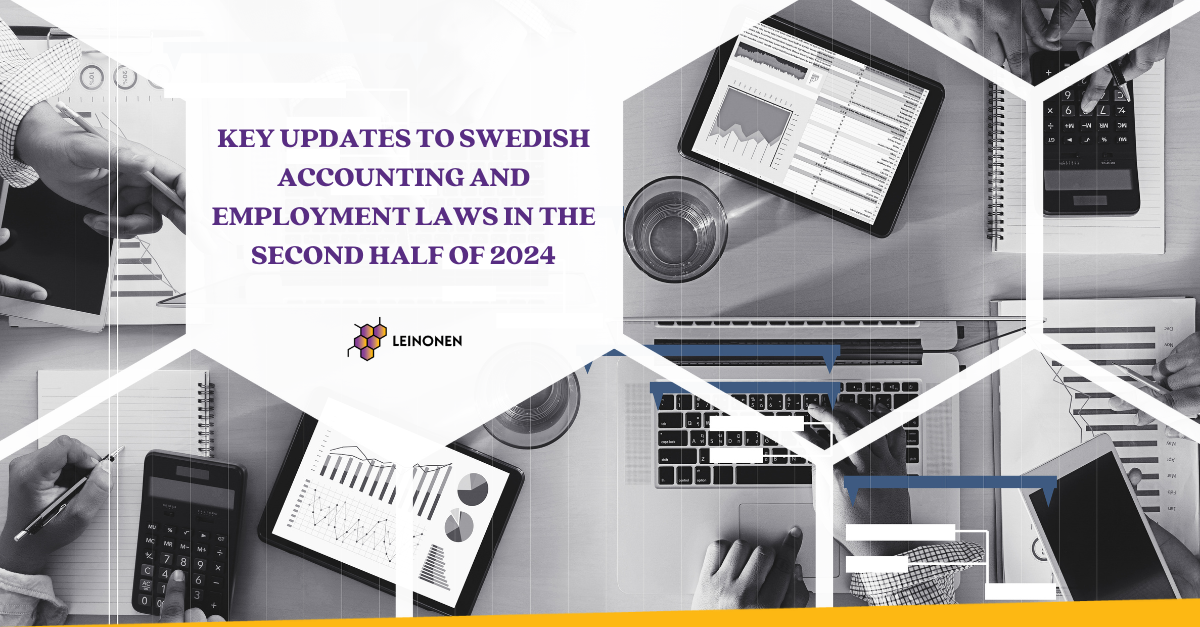The latter end of the year brings with it new opportunities, challenges, and considerations for local and foreign-owned businesses in Sweden. To continue thriving, companies must familiarise themselves with changes to Swedish accounting and employment laws introduced for the second half of 2024.
Changes Have Been Made to:
- The Accounting Act
- The Annual Accounts Act
- The Auditing Act
- The Limited Liability Companies Act
- The Economic Associations Act
Here are some of the most significant recent amendments to Swedish accounting and employment laws in 2024.
Key Accounting Changes in Sweden
- Paperless Information Storage. This much anticipated amendment to the Accounting Act means businesses need no longer retain paper records, providing the information is securely stored in an electronic format. Leinonen explored what this means for businesses in practise in a recent article.
- Sustainability Reporting. Greater detail is now required, and a company’s sustainability report must be reviewed by an auditor. More companies are now required to submit a sustainability report, too (most companies listed on a regulated market).
- Annual Report Dates. Annual reports must contain two dates going forward. As well as the date of signing, the report itself should now be dated.
- Combined Assignment. This change to the Auditing Act, the Limited Liability Companies Act, the Economic Associations Act and the Foundations Act means that anyone who professionally assists a company with their accounting cannot also be an auditor for the company.
Key Employment Changes in Sweden
- Compensation for Employees Born in 1957. People born in 1957 must receive compensation for tax relief lost when they were made to wait an additional year for the increased basic deduction. The age at which they can claim this was raised simultaneously with retirement age in 2023 (which is now 66).
- Parental Insurance. Parents can now take up to 60 ‘double days’, where both parents take leave together and both receive parental allowance. This has doubled from 30 days, and now applies to parents with a child under 15 months instead of 12 months.
- Abolishment of High Sick pay Cost Compensation. Employers can no longer receive compensation for high sick pay costs.
Keep up to date on ever-changing Swedish accounting and employment laws with the reliable support of Leinonen’s local accounting, tax and payroll experts.





